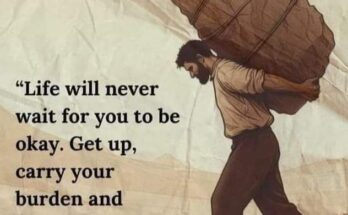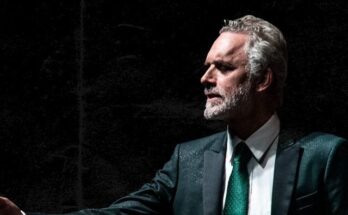Jordan Peterson and the Paradox of Responsibility
In the public discourse of psychology, morality, and meaning, few figures have stirred as much intellectual engagement as Dr. Jordan B. Peterson. Known for his fierce defense of free speech, deep dives into mythology, and existential call to individual responsibility, Peterson has consistently asked his audience to face life with more seriousness and courage than they might otherwise dare. Among the many themes woven through his work, one stands out as especially difficult and transformative: the encounter with a situation that is remarkably impossible.
We often define “impossible” as something that cannot be done, resolved, or endured. It is the moment when all options seem to lead to suffering or failure. But for Peterson, the impossible is not the end of the road. It is the start of transformation. It is the crucible in which the individual confronts the limits of reason, the inevitability of suffering, and the fragility of meaning—yet refuses to surrender. This essay explores how Jordan Peterson understands these impossible situations and what they reveal about human nature, freedom, and the search for meaning.
This essay examines what Peterson might define as a “remarkably impossible” situation—both on the individual level and within society—and how he urges people to act, not out of blind optimism or rage, but out of courage, truth, and moral fortitude. From navigating mental illness to enduring public attacks, from parenting troubled children to resisting ideological possession, Peterson confronts the impossible not to solve it neatly, but to demonstrate that humans are meant to bear burdens beyond their apparent strength. And it is this confrontation, rather than any guaranteed victory, that constitutes a life well lived.
Defining the Impossible
For most, an “impossible” situation means one with no acceptable solution. You’re trapped. You’re damned if you do, damned if you don’t. It could be a terminal diagnosis, a collapsing marriage, a tyrannical employer, or the moral ambiguity of war. In political terms, it may be an ideological divide that feels unbridgeable. In spiritual terms, it may be the silence of God in your suffering.
Jordan Peterson identifies these types of situations not as rare but as inevitable. Life, he argues, is not a problem to be solved, but a tragedy to be confronted. He invokes the myth of Cain and Abel, or the crucifixion of Christ, not merely as religious allegories but as psychological realities. Cain faces a world in which his sacrifices are rejected, while Abel thrives. Injustice. Envy. Bitterness. It’s impossible to make sense of it—but Cain still must choose how to respond.
And that is Peterson’s key insight: You don’t get to avoid impossible situations. But you do get to decide who you will be in the face of them.
The Clinical View: Patients in Despair
In his clinical practice, Peterson often dealt with people in deep despair—those who had lost loved ones, careers, reputations, or even the will to live. These are people whose lives had become remarkably impossible. Nothing helped. Medication dulled the pain but stole the clarity. Therapy illuminated patterns but didn’t lift the burden. Friends tried and failed. Family judged or withdrew.
Yet Peterson didn’t promise a miracle cure. What he offered instead was the dignity of responsibility. He would ask: “What small thing can you fix?” Or, “What lie are you telling that’s making this worse?” Or, “What can you voluntarily carry so the suffering becomes meaningful, not meaningless?”
To someone crushed under the weight of depression or loss, this may seem like cruelty. But for many, it was the first step toward rebirth. Peterson’s stance is radical in its humility: you cannot escape the impossible, but you can endure it honorably. You can become the kind of person who walks through hell without becoming hellish.
Chaos and Order: The Dual Frame of Life
A recurring metaphor in Peterson’s work is the dance between chaos and order. Order is the known, the stable, the structured world of rules, roles, and routines. Chaos is the unknown, the unpredictable, the realm of novelty, tragedy, and transformation. The “remarkably impossible” often emerges from chaos breaking into order—a death in the family, a cultural revolution, a betrayal.
Peterson’s philosophical stance borrows from mythological and Jungian sources: to live meaningfully, you must voluntarily walk the line between chaos and order. Step too far into order and you become rigid, tyrannical, dead inside. Step too far into chaos and you dissolve, lose coherence, become prey to nihilism or madness.
So what does he propose when the situation seems impossible—when chaos swallows order or when both collapse simultaneously?
You stand up straight with your shoulders back.
You speak the truth.
You carry your cross.
You keep going.
This isn’t about fixing the world immediately. It’s about becoming the kind of person who can face it without surrender.
Public Infamy and Personal Collapse
Perhaps the most illustrative example of a “remarkably impossible” situation in Peterson’s own life was his descent into physical and psychological collapse between 2019 and 2021. After years of public criticism, emotional exhaustion, and the side effects of medication, he found himself in what he later described as absolute hell. He was in and out of hospitals across multiple countries. He was nearly nonverbal. His wife was battling cancer. His daughter was trying to hold the family together. The world watched as many mocked him and others mourned.
This was not academic theory. This was abyssal reality.
And yet, even then, Peterson refused to surrender to bitterness. He returned—not just to health, but to the public arena. His voice was slower, more wounded, more cautious—but still unwavering in its core message: Even when everything falls apart, the only way forward is through personal responsibility and truth.
This personal ordeal transformed Peterson from a prophet of order into a wounded guide through chaos. He had lived the impossibility, and still, he spoke.
Cultural Crises and Ideological Deadlocks
On a broader scale, Peterson often discusses how modern society itself finds itself in a situation that feels remarkably impossible. Traditional values are eroding. Political polarization is intensifying. Mental illness is rampant. Young people are anxious and directionless. Families are breaking down. Institutions are losing trust.
In response, some turn to radical ideologies—on the left and the right. Others check out completely, numbing themselves with entertainment, drugs, or cynicism. Peterson argues that neither response works. The world is indeed broken. But fleeing from it or trying to burn it down only deepens the damage.
So what does Peterson propose?
Fix what you can. Start local. Speak honestly. Raise strong children. Strengthen your marriage. Stand up for the good. Accept that perfection is impossible—but progress is not.
This doesn’t mean pretending things are okay. It means choosing to act meaningfully even when you are unsure of success. It means becoming the kind of person who can resist tyranny and chaos. It means being someone for whom the impossible is not an excuse to withdraw, but a summons to grow.
Faith, Myth, and the Religious Frame
There is a deep religious undercurrent in how Peterson frames impossible situations. Though he resists declaring himself a devout Christian, he frequently draws on Biblical narratives—especially the story of Christ—as blueprints for how to face impossibility.
Christ, in Peterson’s telling, is the archetype of the innocent who bears the full weight of suffering and injustice, yet forgives, speaks truth, and transforms death into resurrection. It is the ultimate impossible situation: to face torture and death not with hate, but with grace.
Peterson asks: What can we learn from that? What if every moment of pain, betrayal, or despair was not meaningless, but an invitation to carry the burden with courage?
He does not offer easy answers. He does not guarantee happy endings. But he does suggest that the impossible is not meaningless. In fact, it may be the source of meaning.
The Individual as the Hero
In Peterson’s world, the individual matters immensely. Institutions may falter. Movements may turn corrupt. But the individual still has the capacity to stand, to speak, to choose.
This is the heroic frame: you are not the victim of history. You are not just a cog in the system. You are a soul capable of bearing responsibility for your life. And perhaps, just perhaps, your courage may ripple outward.
“A situation that is remarkably impossible” is not a cause for despair. It is a crucible. It is where the hero is forged.
Critics and Counterpoints
Of course, not everyone agrees with Peterson’s prescriptions. Critics argue that his emphasis on individual responsibility can overlook systemic injustice. They claim that telling people to “clean their room” while ignoring institutional racism, economic inequality, or patriarchal structures is reductive or naive.
Peterson responds that before you can fix the world, you must be the kind of person who won’t make it worse. Revolutions led by unexamined individuals often end in bloodshed and tyranny. His answer to injustice is not apathy, but moral competence. If we want to build better systems, we need better people—people who can withstand impossible pressures without collapsing into hatred, resentment, or ideological fanaticism.
Conclusion: Becoming Capable of Bearing the Impossible
In the end, the question is not whether you will face impossible situations. You will. The question is what kind of person you will be in response.
Will you give up? Will you lash out? Will you numb yourself?
Or will you stand up, speak the truth, carry what is yours to carry, and move forward—however slowly, however painfully?
Peterson’s message is not one of shallow optimism. It is one of tragedy met with responsibility, chaos met with structure, suffering met with meaning. It is a call not to avoid impossibility, but to become the kind of person who can face the impossible with integrity.
That is why, in the face of remarkable impossibility, Jordan Peterson still speaks. Still writes. Still stands.
Not because he believes he can fix everything, but because he believes it is worth trying.
And in that belief lies perhaps the most powerful antidote to despair: the knowledge that meaning is not found in the guarantee of victory,

